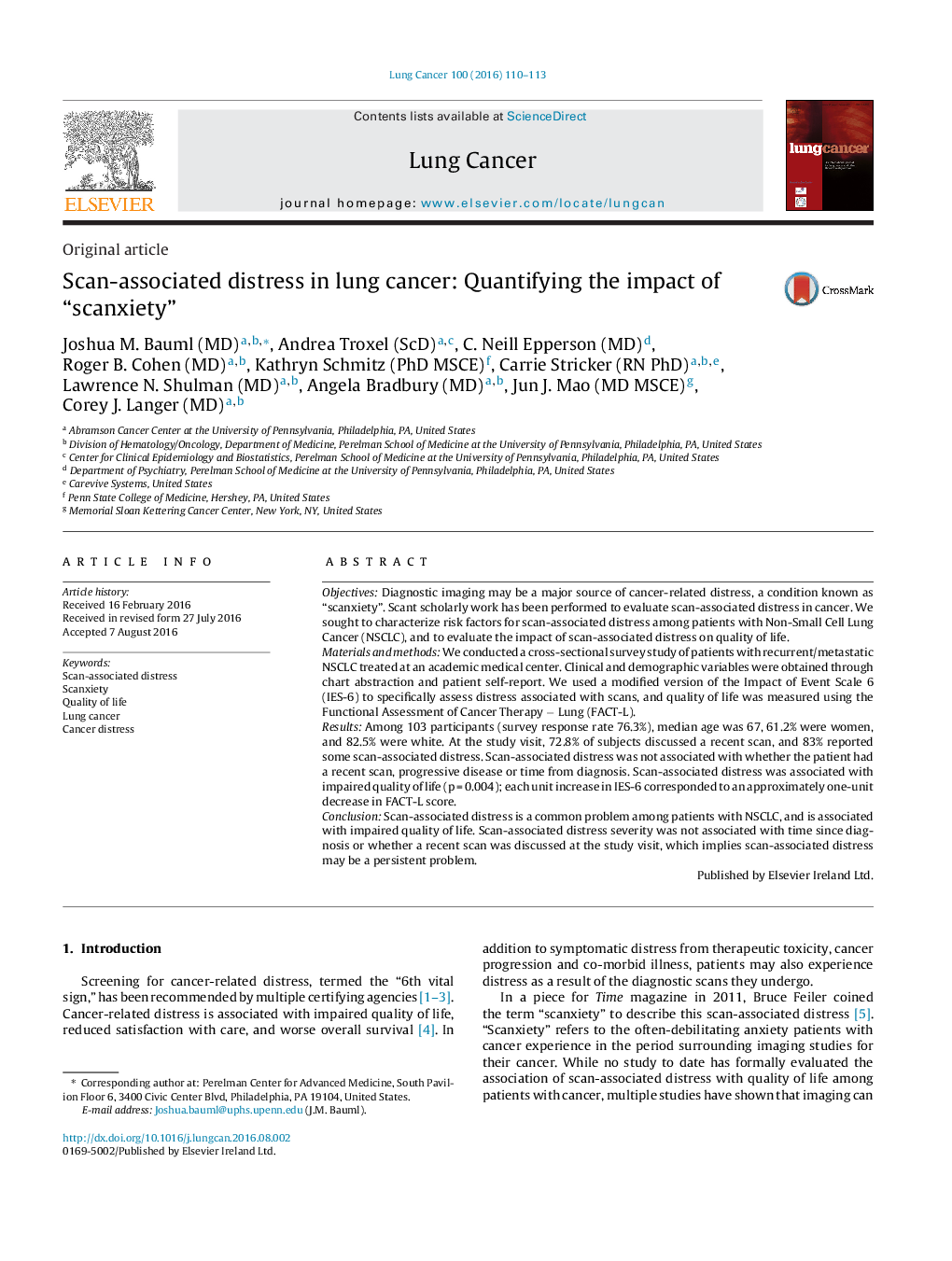| Article ID | Journal | Published Year | Pages | File Type |
|---|---|---|---|---|
| 2140403 | Lung Cancer | 2016 | 4 Pages |
•Scan-associated distress is a common problem for patients with lung cancer.•Scan-associated distress is associated with worse quality of life.•No clinical or demographic features are associated with scan-associated distress.
ObjectivesDiagnostic imaging may be a major source of cancer-related distress, a condition known as “scanxiety”. Scant scholarly work has been performed to evaluate scan-associated distress in cancer. We sought to characterize risk factors for scan-associated distress among patients with Non-Small Cell Lung Cancer (NSCLC), and to evaluate the impact of scan-associated distress on quality of life.Materials and methodsWe conducted a cross-sectional survey study of patients with recurrent/metastatic NSCLC treated at an academic medical center. Clinical and demographic variables were obtained through chart abstraction and patient self-report. We used a modified version of the Impact of Event Scale 6 (IES-6) to specifically assess distress associated with scans, and quality of life was measured using the Functional Assessment of Cancer Therapy − Lung (FACT-L).ResultsAmong 103 participants (survey response rate 76.3%), median age was 67, 61.2% were women, and 82.5% were white. At the study visit, 72.8% of subjects discussed a recent scan, and 83% reported some scan-associated distress. Scan-associated distress was not associated with whether the patient had a recent scan, progressive disease or time from diagnosis. Scan-associated distress was associated with impaired quality of life (p = 0.004); each unit increase in IES-6 corresponded to an approximately one-unit decrease in FACT-L score.ConclusionScan-associated distress is a common problem among patients with NSCLC, and is associated with impaired quality of life. Scan-associated distress severity was not associated with time since diagnosis or whether a recent scan was discussed at the study visit, which implies scan-associated distress may be a persistent problem.
